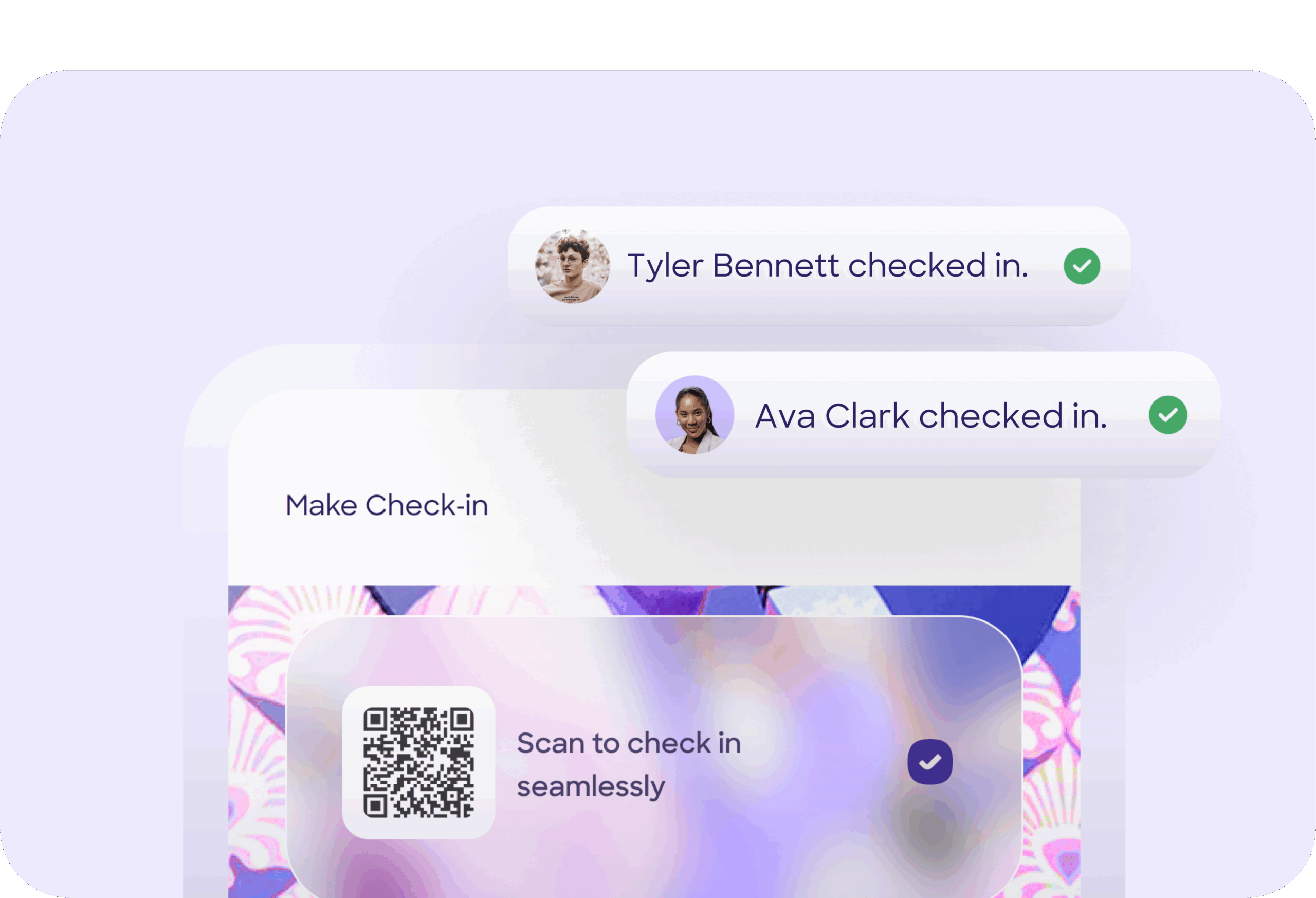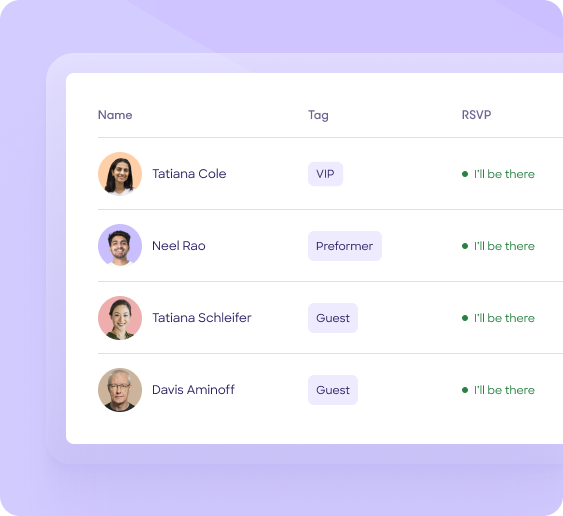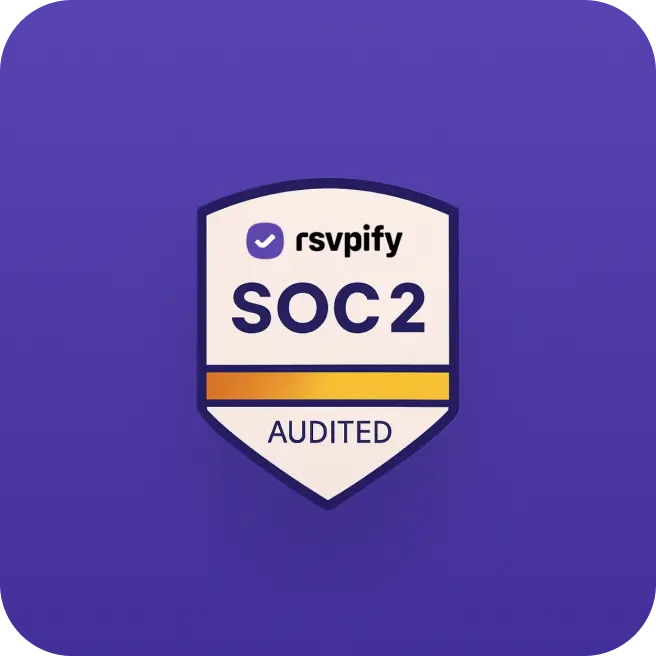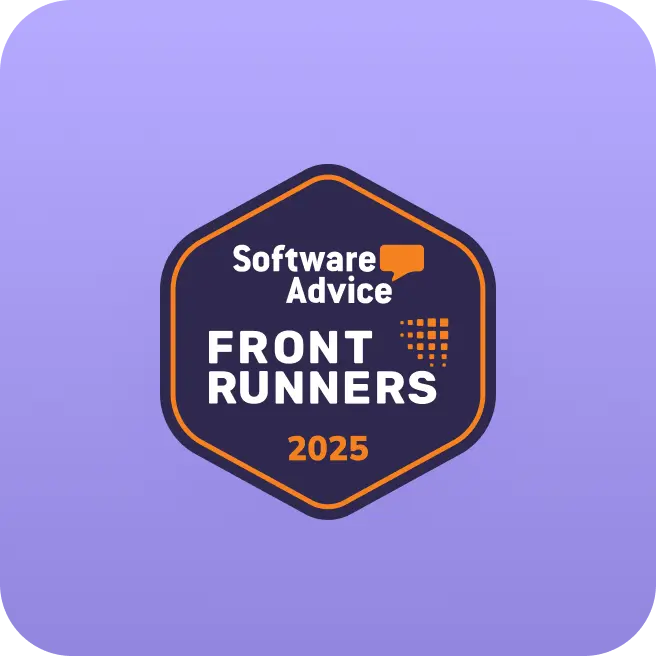Award-winning event software.
RSVPify is honored to be recognized for its innovation, intuitive event software functionality, and exceptional customer support.
Top Rated on G2
4.7/5





Completely integrate your theme or your organization’s branding - not ours. Send branded event invites, design a custom event website, and more.
Collect payments + donations or manage event ticket sales easily. Create ticketing tiers, export event data for accounting, and receive funds within 48 hours.
From small VIP events to conferences, RSVPify event check-in scales up and down as needed. Add event collaborators to manage all organization events in one workspace.
Create custom event badges to simplify event networking without long check-in lines. Design and brand as needed.

Simplify event staffing
Reduce staff headcount with self check-in kiosks, or oversee staff efficiently and admit thousands of attendees easily.
Seamless integration with registration
Easily categorize attendees and manage complex guest lists. One-click exports to track attendance for on-site planning and post-event ROI.
Pair with event badge printing
Pre-create badges to share as attendees check-in or print on-site in real-time.
RSVPify is honored to be recognized for its innovation, ease of use, and exceptional customer support — see what our customers have to say:

Diana B
Communications Strategist
"RSVPify has been instrumental in helping us communicate with our employees and community partners. It’s a dynamic and useful tool for promoting events effectively, and the staff helped answer questions we had at a moment's notice! Couldn’t be happier with the how RSVPify has helped up engage our community."

Purina Nestle
Tiffany K
Associate Director of Alumni Relations
“As an event leader or manager, you have to communicate everything that is happening. RSVPify made it easy for me to do my job - i.e., to see numbers of who responded, who has not yet responded, communicating all in one spot, updating event details in a quick way. I feel like it saved me hours.”
The Bush School

Darius T
Commercial Director
"RSVPify has been a game-changer for managing our awards event invitations. It’s sleek, intuitive, and helps us deliver a seamless experience to our high-profile guests.”

WhatsOnStage

Sophie C
Wildlife Conservation Network
“RSVPify’s system allows us to manage RSVPs on an individual level within groups or families, which is a game-changer for us. It enables us to have more personalized communication with our donors, like sending specific messages about who we look forward to seeing at an event and who we’ll miss. This level of detail and personalization was something we couldn’t find with other platforms.”

Wildlife Conservation Network

Taryn W
Creative Director
“Hands down, [RSVPify] has streamlined event registration. It’s easier for attendees to register, it’s saved us admin time, and it’s made communicating with event attendees so much easier.”
Blockchain Association
Bill R
Director of the Amici Fund & Alumni Relations
“RSVPify has been my favorite of all of the event management platforms that I've used. People need to gather for community - for their health, for their mental health. So what a great tool that you're building for people to create events.”

Woodberry Forest School
Track RSVPs send targeted event comms.
Create online invitations or upload your own design.
Create smart pricing tiers and exclusive VIP offerings.
Use custom questions and form logic for curated registration experiences.
Let guests select multi-course meals and share dietary needs.
Manage invite-only sub-events with ease.
Hosting a private event? Keep it exclusive with advanced security.
Design stylish and branded event badges for your attendees.
RSVPify is honored to be recognized for its innovation, intuitive event software functionality, and exceptional customer support.








RSVPify’s Check-In App lets event teams scan QR codes or search guest names to mark attendees as arrived in real time. All check-ins sync instantly across devices, so multiple staff members can manage entry without conflicts or delays.
No additional hardware is required—your team can check in guests using any smartphone, tablet, or laptop. QR code scanning works through your device’s camera, and all tools are included with your RSVPify plan.
Yes. RSVPify supports unlimited check-in devices and staff accounts. All entries sync instantly so your team can manage multiple lines or entrances without double-checking or communication gaps.
Every RSVPify event automatically generates unique QR codes for each attendee. Staff can quickly scan codes to verify details, status, ticket type, or seating assignments—making check-in fast and accurate.
Absolutely. You can search guests by name, email, ticket type, or RSVP status to check them in manually. Walk-ins can also be added on the spot for accurate final attendance reporting.
Yes—RSVPify allows you to create separate sessions or time slots and track attendance for each one independently. This is ideal for conferences, weekend events, or programs where guests attend specific segments.
Yes. Event ticket purchases automatically generate unique QR codes that can be scanned at entry. Staff can instantly see ticket type, purchase history, and any add-ons tied to that guest.
Yes, RSVPify integrates seamlessly with Billy’s Badges and Expo Pass for on-demand, customizable event badges. You can scan badges at the door for fast, professional check-in and improved line flow.
RSVPify integrates with leading tools like Salesforce, HubSpot, Mailchimp, and Google Sheets. You can sync attendee data, automate follow-ups, and connect registration insights directly to your existing CRM or marketing systems.
Yes—RSVPify offers limited offline support. You can continue checking in guests even without a connection, and the app will automatically sync once you’re back online.
All check-ins update instantly across your dashboard so you always know who has arrived, who hasn’t, and when peak arrival periods occurred. These insights help streamline staffing and post-event reporting.
RSVPify uses enterprise-grade encryption and secure data handling protocols to protect attendee information. Only authorized staff members can access check-in lists, and all data remains securely stored within your event dashboard.